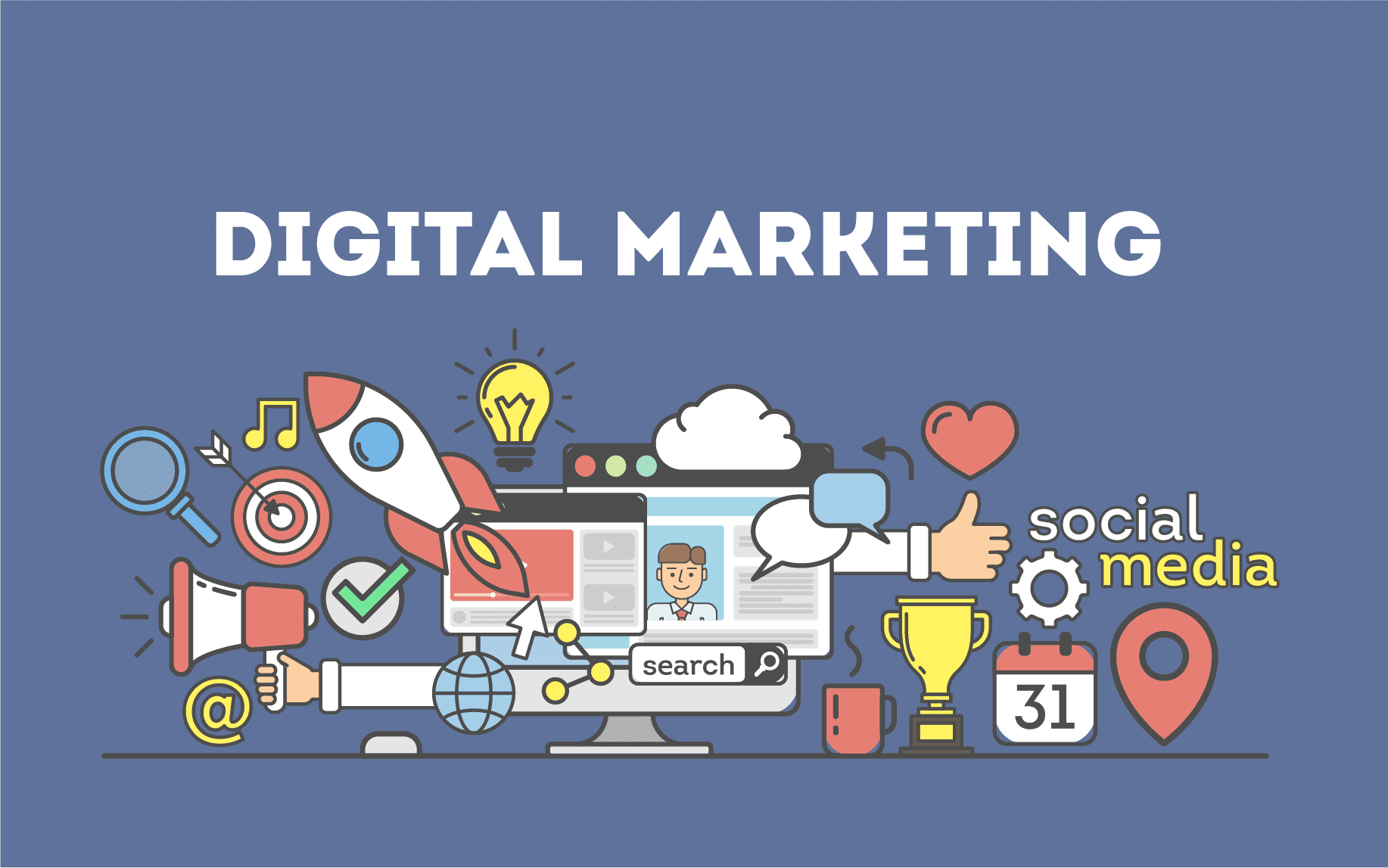In today's digital era, businesses of all sizes are leveraging digital channels to reach and engage with their target audiences. Digital marketing refers to the use of online platforms, strategies, and tactics to promote products, services, and brands. It encompasses various disciplines such as search engine optimization (SEO), social media marketing, content marketing, email marketing, pay-per-click (PPC) advertising, and more.
Digital marketing offers businesses numerous benefits, including:
1. Increased Reach: With digital marketing, businesses can reach a global audience. Online platforms provide access to a vast number of potential customers, enabling businesses to expand their reach beyond geographical boundaries.
2. Targeted Audience: Digital marketing allows businesses to target specific demographics, interests, behaviors, and preferences. This targeted approach ensures that marketing efforts are directed at the right audience, increasing the chances of conversion and customer engagement.
3. Cost-Effectiveness: Digital marketing often offers a more cost-effective solution compared to traditional marketing methods. Businesses can optimize their budget by targeting specific segments and adjusting campaigns based on real-time data and insights.
4. Measurable Results: Digital marketing provides the ability to track and measure campaign performance in real-time. Metrics such as website traffic, conversions, engagement, and customer behavior can be analyzed, allowing businesses to make data-driven decisions and optimize their strategies for better results.
5. Enhanced Customer Interaction: Digital marketing enables businesses to engage with customers on various platforms and build meaningful relationships. Through social media, email marketing, and other channels, businesses can interact with customers, address their concerns, and provide personalized experiences.
6. Flexibility and Agility: Digital marketing allows for quick adjustments and updates to campaigns based on real-time data and market trends. Businesses can adapt their strategies and tactics to stay ahead of the competition and meet changing customer needs.
To effectively implement digital marketing strategies, businesses often work with digital marketing agencies or hire in-house digital marketing professionals. These experts employ various techniques and tools to optimize websites for search engines, create engaging content, manage social media accounts, run paid advertising campaigns, and analyze data to drive business growth.
In summary, digital marketing has transformed the way businesses connect with their target audiences. By leveraging online platforms and strategies, businesses can reach a wider audience, drive brand awareness, generate leads, and ultimately increase conversions and revenue.
How to Start Digital Marketing?
Starting a digital marketing business can be a lucrative venture in today's digital age. Here's a guide to help you get started:
1. Define Your Services: Digital marketing encompasses various disciplines, including search engine optimization (SEO), social media marketing, content marketing, pay-per-click advertising, email marketing, and more. Determine which specific services you want to offer based on your skills and expertise.
2. Identify Your Target Market: Determine the industries or types of businesses you want to work with. Consider factors such as size, location, niche, and target audience. Focusing on a specific market can help you tailor your services and marketing efforts effectively.
3. Develop Your Skills and Knowledge: Stay updated with the latest trends, strategies, and tools in the digital marketing field. Consider acquiring certifications or attending courses to enhance your expertise in specific areas such as Google Analytics, Facebook Ads, or SEO.
4. Create a Business Plan: Outline your business goals, target market, pricing structure, marketing strategies, and financial projections in a comprehensive business plan. This will serve as a roadmap for your digital marketing business and help you stay focused and organized.
5. Build an Online Presence: Develop a professional website that showcases your services, expertise, and client testimonials. Optimize your website for search engines to attract potential clients. Utilize content marketing to establish yourself as an authority in the field through blog posts, whitepapers, case studies, and other valuable resources.
6. Network and Collaborate: Attend industry events, join digital marketing groups, and connect with professionals in the field. Collaborate with complementary service providers such as web designers, copywriters, or social media managers to expand your service offerings and reach a broader audience.
7. Set Pricing and Packages: Determine your pricing structure based on factors such as your expertise, market rates, and the value you provide to clients. Consider offering different packages to accommodate varying client needs and budgets.
8. Acquire Clients: Utilize various marketing channels to acquire clients. This includes networking, referrals, content marketing, social media marketing, email marketing, and paid advertising. Offer free consultations or audits to showcase your expertise and attract potential clients.
9. Deliver Results: Once you secure clients, focus on delivering high-quality services and achieving results. Regularly communicate with clients, provide progress reports, and adjust strategies as needed. Satisfied clients are more likely to provide referrals and long-term partnerships.
10. Stay Updated and Evolve: The digital marketing landscape is constantly evolving. Stay updated with industry trends, algorithm changes, and new technologies. Continuously enhance your skills, experiment with new strategies, and adapt to the changing needs of your clients.
Remember, building a successful digital marketing business requires continuous learning, adaptability, and a strong focus on delivering value to clients. With dedication, perseverance, and a strategic approach, you can establish a thriving digital marketing business.
Subscribe Us
Most Popular

Apple Case Study
January 19, 2026

Bata Case Study
January 16, 2026

Google Chrome Case Study
January 13, 2026
Contact US
"LEARNING IS EARNING"
"KEEP LEARNING,
KEEP EARNING"
Total Pageviews
Most Popular

Apple Case Study
January 19, 2026

Bata Case Study
January 16, 2026

Google Chrome Case Study
January 13, 2026


Social Plugin